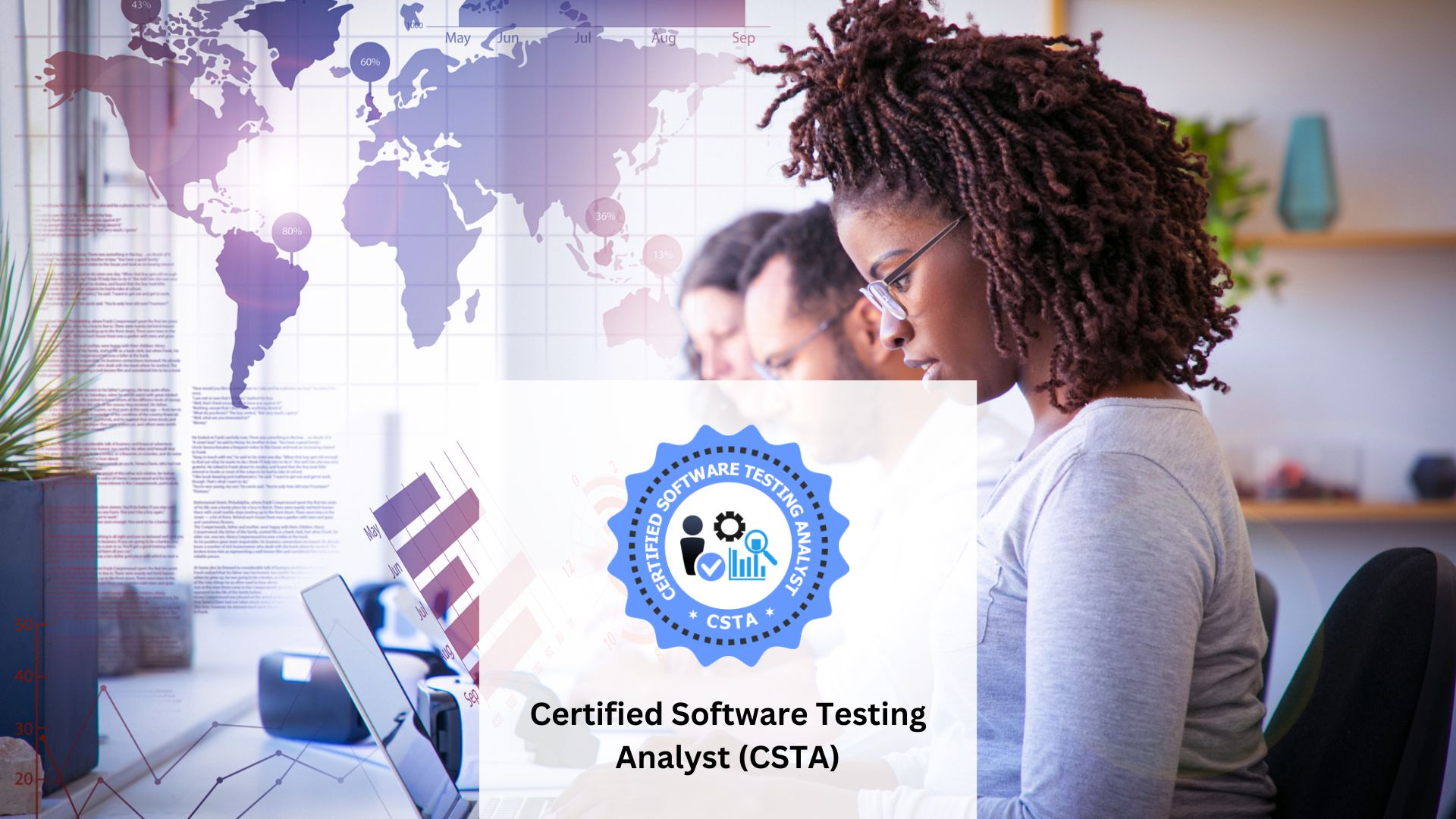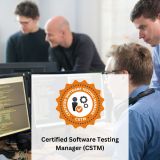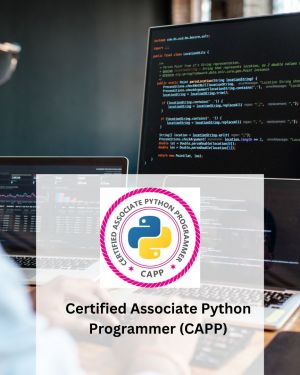The Certified Software Testing Analyst (CSTA)® qualification is aimed at people who have achieved an advanced point in their careers in software testing.
The CSTA® Certification provides the participant with a solid understanding of, and practical experience in, test case design. Participants’ knowledge of the quality and the objective of software testing, the system development and quality assurance lifecycles, and functional testing are reinforced.
The focus of the CSTA® Certification is on Test Case design, and participants are provided with ample opportunity to gain a solid understanding of this. Participants are also provided with an opportunity to design quality assurance.
In the E-Course, participants are presented with various techniques of trawling for requirements in the absence of proper system documentation; this includes context diagrams, data-flow diagrams, workshop facilitation, and interviewing subject matter experts.
You will also learn how to apply testing strategies in real-world situations, gaining competency in the techniques essential for test analysis and performing outcome-driven test activities.
E-Course Duration
30 – 35 Hours
Exam Information
-
Exam Pattern: The exam comprises 100 Multiple Choice Questions out of which the candidate needs to score 80% (80 out of 100 correct) to pass.
-
Candidate can also opt for Certified Software Tester – Advanced Level (CSTAL) – Test Analyst or Technical Test Analyst (CSTTA)® based on ISTQB Syllabus at the time of scheduling an exam.
-
-
Duration of Exam: 1 hour 30 minutes (90 minutes).
-
Exam Format: Conducted in a non-proctored mode and can be taken anytime and anywhere within an eight-month validity period.
-
Upon purchasing the Premium Package or an Exam Voucher Code, a voucher code with two attempts will be assigned to your login profile under the “My Vouchers” tab.
-
You can then take the exam through the “My Exam(s)” tab in your profile. To take the exam, simply apply the voucher code.
-
-
Retaking of the Exam:
-
The Exam Voucher included in the Premium Package or purchased separately is valid for two (2) attempts.
-
If you are unable to pass the exam within these two attempts, you can purchase a new voucher code, which will grant you an additional two attempts.
-
Kindly Note: The voucher will not be valid for a second attempt if you pass the exam on your first attempt.
-
-
Certification Validity: The Certified Software Tester – Intermediate Level Certificate is valid for Four (4) years.
Course Outline
Module 1 – Testing Fundamentals and Process
-
Quick Overview on Testing
-
Testing Lifecycle Process
-
Testing in the SDLC
-
Test Monitoring, Planning and Control
-
Test Analysis
-
Test Design
-
Test Implementation
-
Test Execution
-
Evaluating Exit Criteria and Reporting
-
Test Closure Activities
Module 2 – Test Management for the Test Analyst
-
Test Progress Monitoring and Control
-
Distributed, Outsourced and Insourced Testing
-
Test Analyst’s Tasks in Risk-Based Testing
Module 3 – Testing Software Quality Characteristics (Part 1)
-
Test Techniques
-
Specification-Based Techniques
-
Defect-Based Techniques
-
Experience-Based Techniques
-
Cause-effects graphs
-
Equivalence partitioning
-
Boundary Value
-
Decision Table
-
State Transition
-
Pairwise Testing
-
Case-based Testing
-
Mind Mapping
-
Test Matrix
-
Error Guessing Technique
-
Checklist-based Technique
-
Exploratory Testing
-
Attacks
Module 4 – Testing Software Quality Characteristics (Part 2)
-
Quality Characteristics for Business Domain Service
-
Testing Characteristics
-
Typical Defects
-
Testing in the Life Cycle
-
Approaches, Usability Requirements, and User’s Expectations
Module 5 – Review Preparation
-
Using Checklists in Reviews
-
Analyze a use case or user interface and identify problems
-
Analyze a requirements specification
-
Types of review
-
Roles and Responsibilities in Reviews
-
Informal Review
-
Management Review
-
Analyze Requirements Specification or User Story
Module 6 – Defect Management
-
Detecting Defects
-
Defect Report Fields
-
Non-functional Defects
-
Defect Classification
-
Identifying, Gathering, and Recording Classification
-
Root Cause Analysis
Module 7 – Test Tools and Automation
-
Test Tools
-
Test Analyst’s role in Keyword Driven Automation
-
Troubleshooting
-
Testing Tools Approaches
Module 8 – Software Inspection
-
Software Inspection
-
Testing Methods and Strategies
Module 9 – Usability Testing
-
Attributes
-
Usability Testing Process
-
Client/Server Testing
Module 10 – Additional Test Design Technique
-
Static Analysis
-
Dynamic Analysis
Target Audience
The CSTA is ideal for testers and test teams who are looking to build on their existing software testing skills.
-
Experienced Testers wanting to progress their hands-on advanced testing skills.
-
Test Managers wanting a better understanding of advanced testing skills.
-
Testers wanting to accredit their advanced-level skills for recognition among employers, clients, and peers.









